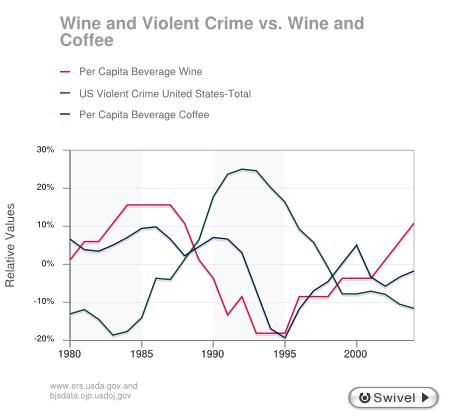December 2006 Monthly Archive
This Is Not A Narcissistic Injury

I know it looks like one, but it's not. And why it's not makes every difference in predicting what will happen next.
My previous post described the modern narcissist, which is slightly different than the kind described by Kohut and others. In short, the narcissist is the main character in his own movie. Not necessarily the best, or strongest, but the main character. A narcissistic injury occurs when the narcissist is confronted with the reality that he is not the main character in his movie; the movie isn't his, and he's just one of 6 billion characters.
The worst thing that could happen to a narcissist is not that his wife cheats on him and leaves him for another man. He'll get angry, scream, stalk, etc, but this doesn't qualify as a narcissist injury because the narcissist still maintains a relationship with the woman. That it is a bad relationship is besides the point-- the point is that he and she are still linked: they are linked through arguing, restraining orders, and lawyers, but linked they are. He's still the main character in his movie; it was a romantic comedy but now it's a break-up film. But all that matters to the narcissist is that he is still the main character.
No, that's not the worst thing that can happen. The worst thing that could happen to a narcissist is that his wife cheats on him secretly and never tells him, and she doesn't act any differently towards him, so that he couldn't even tell. If she can do all that, that means she exists independently of him. He is not the main character in the movie. She has her own movie and he's not even in it. That's a narcissistic injury. That is the worst calamity that can befall the narcissist.
Any other kind of injury can produce different emotions; maybe sadness, or pain, or anger, or even apathy. But all narcissistic injuries lead to rage. The two aren't just linked; the two are the same. The reaction may look like sadness, but it isn't: it is rage, only rage.
With every narcissistic injury is a reflexive urge towards violence. I'll say it again in case the meaning was not clear: a reflexive urge towards violence. It could be homicide, or suicide, or fire, or breaking a table-- but it is immediate and inevitable. It may be mitigated, or controlled, but the impulse is there. The violence serves two necessary psychological functions: first, it's the natural byproduct of rage. Second, the violence perpetuates the link, the relationship, keeps him in the lead role. "That slut may have had a whole life outside me, but I will make her forever afraid of me." Or he kills himself-- not because he can't live without her, but because from now on she won't be able to live without thinking about him. See? Now it's a drama, but the movie goes on.
So if you cause a narcissist to have a narcissistic injury, get ready for a fight.
Saddam is not experiencing a narcissistic injury: he is still the main character in the movie. If he was sentenced to life in prison, to languish, forgotten, no longer relevant, no longer thought about, that would be a narcissistic injury-- then his rage would be intense, his urge towards violence massive. But who cares? There's nothing he could do.
But remaining the main character, he has accomplished the inevitable outcome of such a movie: he has become a martyr. Even in death, he is still the main character. That's why the narcissist doesn't fear death. He continues to live in the minds of others. That's narcissism.
I'm not saying executing Saddam wasn't the right thing to do, and I'm not sure I have much to add to theoretical discussions about judgment, and punishment, and the sentence of death. It doesn't matter what your political leanings are, what matters is we look at a situation that has occurred, and use whatever are our personal talents to try and predict the future.
I understand human nature, and I understand narcissism. And I understand vengeance. Saddam was a narcissist, but this wasn't a narcissistic injury.
This was a call to arms.
We should all probably get ready.

 Score: 5 (5 votes cast)
Score: 5 (5 votes cast)
If This Is One of The Sexiest Things You've Ever Seen, You May Be a Narcissist
A quick primer on the new Narcissism.
I don't mean the traditional Kernberg, Kohut, or even Freudian descriptions. In the modern times, I think narcissism has evolved.
A narcissist isn't necessarily an egotist, someone who thinks they are the best. A quick screen is an inability to appreciate that other people exist, and have thoughts, feelings, and actions unrelated to the narcissist. These thoughts don't have to be good ones, but they have to be linked to the narcissist. ("I'm going to get some gas-- because that jerk never fills the car.")
The narcissist believes he is the main character in his own movie. Everyone else has a supporting role-- everyone around him becomes a "type." You know how in every romantic comedy, there's always the funny friend who helpes the main character figure out her relationship? In the movie, her whole existence is to be there fore the main character. But in real life, that funny friend has her own life; she might even be the main character in her own movie, right? Well the narcissist wouldn't be able to grasp that. Her friends are always supporting characters, that can be called at any hour of the night, that will always be interested in what she is wearing, or what she did. That funny friend isn't just being kind, she doesn't just want to help-- she's personally interested in the narcissist's life. Of course she is.
A comedian I can't remember made a joke about actors in LA, but it's applicable to narcissists: when two narcissists go out, they just wait for the other person's mouth to stop moving so they can talk about themselves.
So on the one hand, the narcissist reduces everyone else to a type, as it relates to himself; on the other hand, the narcissist, as the main character in his movie, has an identity that he wants (i.e. he made it up) and requires all others to supplement that identity.
A narcissist looks the same every day; he has a "look" with a defining characteristic: a certain haircut; a mustache; a type of clothing, a tatoo. He used these to create an identity in his mind that he will spend a lot of energy keeping up.
Consider the narcissist who wants his wife to wear only white, high heeled pumps. The narcissist wants this not because he himself likes white high heel pumps-- which he might-- but because the type of person he thinks he is would only be with the type of woman who wears white high heeled pumps. Or, in other terms, other people would expect someone like himself to be with a woman who wears those shoes. What he likes isn't the relevant factor, and certainly what she likes is irrelevant. What matters is that she (and her shoes) are accessories to him.
Never mind that the woman is obese, or 65, or the shoes out of style, or impractical-- the shoes represent something to him, and he is trying to reinforce his identity through that object.
Narcissists typically focus on specific things as proxies for their identity. As in the example above, that the woman might be obese or a paraplegic could be ignored if the footwear was the proxy for identity. These proxies are also easy to describe but loaded with implication: "I'm married to a blonde." Saying "blonde" implies something-- e.g. she's hot-- that might not be true. But the narcissist has so fetishized "blondeness" that it is disconnected from reality. The connotations, not the reality, are what matters (especially if other people can't check.)
This explains why narcissists feel personally sleighted when the fetishized object disappears. "My wife stopped dying her hair blonde; but when she used to date her other boyfriends, she was in the salon every month. Bitch." He doesn't see the obvious passage of time, what he sees is part of his identity being taken from him, on purpose. Here's the final insult: "she obviously doesn't care about me as much as her old boyfriends."
As a paradigm, the narcissist is the first born (or only) child, aged 2-3. Everything is about him, and everything is binary. His, or not his. Satisfied, or not satisfied. Hungry, or not hungry. Mom and Dad are talking to each other and not me? "Hello! Focus on me!" Youngest children don't typicaly become narcissists because from the moment of their birth, they know there are other characters in the movie. (Youngest more easily becomes borderline.) Control, of course, is important to a narcissist. If you can imagine a 40 year old man with the ego of a 2 year old, you've got a narcissist.
Obviously, not all first borns go on to be narcissists. Part of their development comes from not learning that there is a right and wrong that exists outside them. This may come from inconsistent parenting:
Dad says, "you stupid kid, don't watch TV, TV is bad, it'll make you stupid!" Ok. Lesson learned. But then one day Dad has to do some work: "stop making so much noise! Here, sit down and watch TV." What's the learned message? It isn't that TV is sometimes good and sometimes bad. It's that good and bad are decided by the person with the most power.
So the goal in development is to become the one with the most power. Hence, narcissists can be dogmatic ("adultery is immoral!") and hypocrites ("well, she came on to me, and you were ignoring me at home") at the same time. There is no right and wrong-- only right and wrong for them. He's an exaggerated example: if they have to kill someone to get what they want, then so be it. But when they murder, they don't actually think what they're doing is wrong--they're saying, "I know it's illegal, but if you understood the whole situation, you'd understand..."
Narcissists never feel guilt. Only shame.

 Score: 22 (22 votes cast)
Score: 22 (22 votes cast)
I'm One of The Best Doctors In America. Seriously.

Continuing my week long celebration of narcissism, let me jump on the wagon: I got an email informing me I was selected as one of the "Best Doctors in America." (5% of doctors, selected by peers; and no, I didn't pay them.) Yay!! Me!! Now...

 Score: 4 (4 votes cast)
Score: 4 (4 votes cast)
Comedians Tosh, Gaffigan and Hedberg for Narcisissm
I know, I said I was going on Christmas break. But what better time than the holidays to focus on narcissism?
After thinking about how marketers target our narcissistic leanings, I wondered if other groups did the same. Stand up comedy seems also to have followed this path. Most of today's main comics do what I call meta-comedy; they tell jokes, but then also deconstruct the process of joke telling, right there, during the act. They comment on the act. Here are some examples:
Continue reading:
"Comedians Tosh, Gaffigan and Hedberg for Narcisissm" ››

 Score: 9 (9 votes cast)
Score: 9 (9 votes cast)
An Army of Narcissists? No Way

A tremendous example of the societal narcissism I wrote about in my Time article with the funny cover. If there was any one organization that I would have thought was in direct opposition to narcissism it would be the military, yet here it is, being specifically promoted.
I understand the practical necessity of this approach, of course; trying to tap into a listless and apathetic populace who get their current events from clips of the Colbert Report on YouTube-- they can't even be bothered to find Iraq or Afghanistan on a map, let alone enlist. But mark my words, when a military cannot effectively appeal to any higher beliefs at all, and must resort to patronizing illusions of self-fulfillment only, then this society cannot last.
Look at the evolution of the slogans, and tell me I am exaggerating (from Army Times:)
“Today’s Army wants to join you”: 1971-73.
“Join the people who’ve joined the Army”: 1973-1979.
“This is the Army”: 1979-1981.
“Be all you can be”: 1981-2001.
“An Army of one”: 2001-2006.
Look at the grammar, the semiotic connotations. A question for the historians would be whether or not a civilization in decline was aware that it was declining; and if not, what did they think was going on?
But perhaps all is not lost. The Army just announced their new recruiting motto, which has apparently tested quite well: "Army Strong."
-----
As an aside, the "Army Strong" campaign was created by the Army's new advertising firm, McCann Erikson. They're responsible for the MasterCard "priceless/there are some things money can't buy" campaign. Of course, this cost the Army one billion dollars.
I'll go back to psychiatry now.

 Score: 8 (8 votes cast)
Score: 8 (8 votes cast)
Christmas Break
I'm off for two weeks, taking the opportunity to upgrade the computers/monitors and plan my next move. I will also be starting another blog under another alias. I'll reveal it as mine if it takes off.
Also, to all those who emailed me about the Time Person of the Year post: thanks; it wasn't Photoshop but MS Paint; I have nothing against Grossman at all, I loved his King piece, the piece wasn't about Grossman, it was about us, society, our purposeful alienation from each other; I changed the screen to blue to reference the Blue Screen of Death; no, "Go Fuck Yourself" wasn't supposed to be (only) mean, it was a double entendre: narcissism--> self love--> "Go Fuck Yourself."

 Score: 0 (0 votes cast)
Score: 0 (0 votes cast)
Time's Person of the Year Is Someone Who Doesn't Actually Matter
That would be you.
The short version of the Time article is that we as individuals have formed a community on the internet (YouTube, MySpace, Wikipedia, etc), and this community is starting to "build a new kind of international understanding, not politician to politician... but person to person."
Ok, no. Wrong, wrong, wrong all over the place.
The author of this piece is Lev Grossman. Grossman is fairly famous book critic, one of the better ones. He also wrote a novel that's a nod to Borges. This isn't bad, it's just context.
The entire problem with Grossman's premise is exemplified by his first paragraph:
The "Great Man" theory of history is usually attributed to the Scottish philosopher Thomas Carlyle, who wrote that "the history of the world is but the biography of great men." He believed that it is the few, the powerful and the famous who shape our collective destiny as a species. That theory took a serious beating this year.
Well, not exactly. Grossman's thesis is that we matter, we can shape our destinies; he puts that in contrast to Carlyle's premise that great men help shape destiny. But that's not what Carlyle actually says. Here's the actual quote:
In all epochs of the world's history, we shall find the Great Man to have been the indispensable savior of his epoch;--the lightning, without which the fuel would never have burnt. The History of the world, I said already, was the biography of Great Men.
Carlyle doesn't say great men shape destiny; he says great men, and only great men, cause history. These great men should be given power to run society because only they can be trusted to do it. Great men actually drive history, not shape it.
So Grossman is not really paraphrasing Carlyle correctly. This is important because Grossman is a book critic with a PhD from Harvard in comparative literature. Either he simply did not know this about Carlyle, which I have to assume is impossible, or it didn't matter: he commandeered the quote, stripped it of the meaning Carlyle intended and used it the way he needed to use it. And that exactly describes the problem: truth and reality aren't important, what's important is you.
Because "You" as Person of the Year is actually quite portentuous. It's is both representative and symptomatic of the problem of our times: narcissism. Nowadays we are so alienated and matter so very little to larger society that the only thing that inflames any passion is to be reminded of this. Consider Bush and Cheney. Put aside politics for a moment, it is clear that their single-mindedness of purpose ignores each of us as individuals. Give them the benefit of the doubt, that they are doing what they think is best. But it's best for society, for America: what we hate is that it isn't for us, for you, for me. That's what people hate about them, the seeming indifference to our individual worth, to our sense of importance. Our votes don't count; everything is about religion; "Global War On Terror." Where in all that is the individual? We are tools to their "higher cause." I know people say that they are angry at the cause; but I think it's really anger that we're being used for anything.
Being on YouTube, having a blog, having an iPod, being on MySpace-- all of these things are self-validating, they allow that illusion that is so important to narcissists: that we are the main characters in a movie. Not that we're the best, or the good guys, but the main characters. That everyone around us is supporting cast; the funny friend, the crazy ex, the neurotic mother, the egotistical date, etc. That makes reminders of our insignificance even more infuriating.
Take a look at the photos in the Time article: a DJ, a punk rocker, a guy in dredlocks, a kid dancing with headphones, a guy singing into a mic, a hot chick taking a photo of herself-- none of these people could ever be "Person of the Year." They barely have identities outside of their image. (And observe how so many are defined through music they listen to.) They must be defined by something from without, like a tattoo. But they deserve everything anyone else can have. It's their right.
I'm not saying each of us as individuals is insignificant. We should, could, matter. But to protect ourselves from an existential implosion, we decide to define ourselves through images and signs, rather than behaviors; lacking an identity founded in anything real makes us vulnerable to anger, resentment. But no guilt, ever. The narcissist never feels guilt. He feels shame.
It can't last. If society chooses to make narcissism the default, it's going to have to deal with society-wide narcissistic injuries-- when we suddenly realize that it isn't solely our movie and we're really not the main character. And no one wants to see this stupid movie anyway. This inevitably leads to violence: the school shooting, inexplicable knifing over Play Station 3, Andrea Yates, beating the wife because she wore the wrong shoes type of violence. Oh, they weren't white high heeled pumps? That bitch! She used to wear them for her old boyfriend.
I'm not sure anyone in psychiatry sees this-- they are too busy documenting Pharma excesses and Lamictal outcomes-- but it is the problem of our times. The only ones who seem to notice are advertisers, marketers-- they see it. They don't judge it, they simply profit from it.
Grossman could morph Carlyle into what he wanted because Carlyle doesn't matter, what matters is what Grossman wanted, what Grossman needed. Carlyle doesn't exist, or he only exists as we need to use him. He becomes a tool, another supporting character. Anyone actually read anything by Carlyle anymore? Why bother? We only need a few soundbites for our own use. Grossman is a clearly a good writer and hardly the problem here. But picking "You" as Person of the Year only reinforces the collective delusion that our individual selves matter more than other person, or a collective good, an ideology, truth, or right and wrong. It's relativism with a cherry twist.
It won't last. It absolutely can't.

 Score: 12 (14 votes cast)
Score: 12 (14 votes cast)
Diana Chiafair 's Hot, but Is She Illegal?

from Pharmagossip, but also Dr. Peter Rost's site, edrugsearch (which actually has several rep-models), etc, etc. She's a rep from Miami (where else) who won Miss FHM 2006.
Meanwhile, Sunderland at the NIH plead guilty to "conflict of interest" charges-- he had received about $300k over 5 years from Pfizer while he was a director at NIH, but never disclosed the money.
All of medicine has rules about disclosing financial relationships. Any academic center, for example, requires you to list all financial entaglements that could be perceived as conflicts of interest, including grants, honoraria, stock holdings, etc. The idea, of course, is that money can exert undue influence, and at the very least the people around you should be aware of any potential conflicts of interest.
This includes conflicts of family members. If you are giving a Grand Rounds about how Zoloft is better than Lexapro, but your wife is a Zoloft rep, you could be benefiting financially by getting people to write more Zoloft which gets her bigger bonuses, so you have to disclose this relationship.
But if you are dating a Zoloft rep, you don't have to. There would be no way you could be profiting financially from her increased sales, and thus no need to disclose that relationship.
But there's the cryptosocialist hypocrisy. If it was really about protecting the public from conflicts of interest, we'd have to disclose dating reps as well. History is full of examples of people behaving unethically for the sole purpose of bedding a woman. Want examples? They all come from politics. Still want examples?
So why aren't we worried that I'm praising Zoloft because my rep is hot? Perhaps we should mandate all reps be ugly? You know, to protect society?
This sounds silly not because hot reps don't have influence, but because we're lying: it's not the influence that actually bothers us. It is specifically the money. "It's not fair that a doctor gets all that money from..."
So let's stop kidding ourselves, it's not about protecting the public after all; it's really about resentment that the doctor makes so much money off the people; that they get sent on trips first class while others can't afford healthcare; about the rich getting richer at the expense of the poor. &c., &c. Pick up any copy of the New York Review Of Books for further examples.
Taking the convenient moral high ground just because it has better soundbites ("the public has the right to know!") and saves us from having to perform any critical thought is lazy and unproductive. If you want to argue that doctors make too much money or Pharma's profits are excessive, we can go down that road and try for an honest and productive debate. But let's stop pretending these disclosure rules have anything to do with protecting the public from bias. They have everything to do with the current zeitgeist of income redistribution and class warfare.
---
As an cultural observation, look for the drug rep to become the next fetishized job, like cheerleader and nurse. A profession becomes sexualized not because the members are themselves hypersexual, but because they represent a particular balance of the "unattainable slut:" "sleeps with everyone but me." "e.g. the only reason that bitch (nurse or rep) isn't sleeping with me is that I'm not a doctor." In this way suppressed misogyny is given a cover story to make it acceptable. It's narcissism protected by an "if only" delusion. Violence is never far behind.
--- And there's your free association bringing me back to what I was really thinking when I saw Diana Chiafair's photo: marxism and healthcare reform. Hot rep--> fetishized--> commodity fetishism. Because we never see the labor that went into the objects, we never see that social relation; the laborer disappears, all that is left is the commodity to which we ascribe value-- fetishize it.
Continue reading:
"Diana Chiafair 's Hot, but Is She Illegal?" ››

 Score: 7 (7 votes cast)
Score: 7 (7 votes cast)
If You Are Surprised By Vioxx's Risks, You're Fired
Continue reading:
"If You Are Surprised By Vioxx's Risks, You're Fired" ››

 Score: 1 (1 votes cast)
Score: 1 (1 votes cast)
Violent Crime vs. Coffee vs. Wine
Draw your own conclusions.
Violent crime range: 1.2-2.0 million
coffee: 20.2-27.5 gallons
Wine range: 1.7-2.3 gallons
From http://www.swivel.com/graphs/show/1163271

 Score: 1 (1 votes cast)
Score: 1 (1 votes cast)
Mood Stabilizer + Antipsychotic for Bipolar
This slide-, taken from a drug company program- like many others-- shows that using a mood stabilizer + antipsychotic is better than mood stabilizer alone.
Look carefully. This is what is wrong with psychiatry.

As you can see, Risperdal + Depakote (orange) is better than Depakote alone (blue.)
This is not a finding unique to Risperdal. Every antipsychotic has virtually identical data for adjunctive treatment, which is good, because they shouldn't have different efficacies.
So given that 8 other drugs have identical findings, these data suggest that, essentially, two drugs are better than one.
That's obvious, right? That's what the picture shows? Well, here's what's wrong with psychiatry: without looking at the slide, tell me what the y-axis was. Write it here:______________
The problem in psychiatry is that no one ever looks at the y-axis. We assume that the y-axis is a good one, that whatever measure used is worthwhile. We assume that the y-axis has been vetted: by the authors of the study, by the reviewers of the article, by the editors of the journal, and by at least some of the readers. So we focus instead on statistical significance, study design, etc. Well, I'm here to tell you: don't trust that anyone has vetted at anything.
The y-axis here is "% of patients with a YMRS <12." What's a YMRS? A mania scale. But what is a 12? Is it high? Low? What's the maximum score? What counts as manic? What questions does the YMRS ask, how does it measure the answers? You don't know? Again-- we figure someone else vetted it. The YMRS is a good scale because that's what scale we use.
Forget about the YMRS-- what does "% of patients" mean? If this is an efficacy in adjunct treatment study, why not have the y-axis be just the YMRS, to show how much it went down with one or two drugs?
Because that's the trick. This y-axis doesn't say "people got more better on two drugs." It says, "more people on two drugs got better."
Pretend you have a room with 100 manics. You give them all Depakote, and 30% get better. Now add Risperdal-- another 30% get better. But that doesn't mean the Depakote responders needed Risperdal, or the Risperdal responders needed Depakote-- or the other 40% got anything out of either drug.
It could be true that the effects are additive-- but this study doesn't show that. No study using "% of patients" can speak to synergistic effects. In other words, these studies do not say, "if you don't respond to one drug, add the second." They say, "if you don't respond to one drug, switch to another drug." They don't justify polypharmacy. They require trials at monotherapy.
So you may ask, well, do two drugs lower mania better than one drug, or not?
Depending what week you look at, MS alone reduces the score by 13; two drugs gives you another 3-6 points. On an 11 question scale, rated 0-4. So no, it's not better.
I have yet to meet someone who doesn't interpret these studies as supportive of polypharmacy, and it's not because they aren't critical. The reason for the blindness is the paradigm: they think-- want-- the treatment of bipolar to be the same as the treatment of HIV, or cancer, or pregnancy. The important difference is that these other diseases are binary: once you get them, nothing you do makes it worse. Take pregnancy. If two chemicals combined lower the rate of pregnancy, it is clearly worth it to take both. One chemical might have been enough, but who wants to find out? So you take the risk, and you eat both. This is also my argument against making Plan B OTC. Bipolar is not like this: if one or two drugs in succession fail, or things get bad, you can always resort to polypharmacy later.
Again, it may be true that polypharmacy is necessary. Maybe 3-6 points are needed. Maybe two drugs gets you better faster. But it can't be the default, it can't be your opening volley. Because I can't prove two drugs are better than one, but I can prove they have twice as many side effects, and are twice as expensive.
At minimum, if polypharmacy is successfully used to break an acute episode, you should then try to reduce the dose and/or number of drugs.
Now, here's the homework question: if all these antimanics have about the same efficacy, and polypharmacy should be third or fourth line, why do we start with Depakote? Is it better? Safer? Cheaper? What are the reasons behind our practice?

 Score: 4 (4 votes cast)
Score: 4 (4 votes cast)
How To Get Rich In Psychiatry Steps 6-10
Continue reading:
"How To Get Rich In Psychiatry Steps 6-10" ››

 Score: 5 (5 votes cast)
Score: 5 (5 votes cast)
Murder-Suicide
Just thought you should know:
There are about 1200 murder-suicides per year (i.e. 500-600 suicides by the person who just killed someone else).
75% involve the boyfriend/girlfriend or spouse; 96% of the murderers are males (duh)
92% involve guns
92% occur in the house of the victim
There is an average 6 year age difference between the murderer and his victim. Risk increases with widening age difference.
23% of murder-suicides (say, about 130), the murderer is 55 or older. Contrast this with the general homicide rate by 55 year olds: 5%
Contrast this with the suicide statistics in the general population, and I think you'll agree that there are an amazingly high number of people dying at the hands of their idiot boyfriends/husbands. "You don't understand, I loved her, I'd do anything for her, and she lied, slept around-- all that time meant nothing to her-- she wouldn't listen! How can she just take what we had and just throw it away? It doesn't make any sense!"
The societal question is what has happened to many men that they are unable to define themselves, or affirm their value, except through another person. And "love"-- or its distortion-- and aggression are closely linked in such people. But that's narcissism, and it's the disease of our times.

 Score: 7 (11 votes cast)
Score: 7 (11 votes cast)
If Bipolar is Kindled Than You're In Trouble
Tolerance develops to benzodiazepines-- and every other antieplieptic, according to the new Epilepsia article.
In general, efficacy to all AEDs decreases with long term exposure. That's tolerance. If being on an AED reduces seizures by 50%, then tolerance is defined as occuring when you return to less than 50% reduction of symptoms. Thus defined, tolerance (of such severity that increased doses do not help) occurs in 10-50%.
Worse, there appears to be cross tolerance. For example, and likely most significant for psychiatric patients, Depakote "lost >50% of its anticonvulsant efficacy in mice pretreated twice daily for only 3 days with [benzos]."
Why does tolerance occur? On the one hand is the obvious metabolic concern-- autoinduction of hepatic enzymes-- but this is really only relevant with the first generation drugs (and especially CBZ and phenobarbital (these are such powerful inducers of cytochrome enzymes that they actually induce their own metabolism)-- while Depakote is the opposite (inhibitor of cytochromes-- which is why you must reduce the initial doses of Lamictal when given with Depakote, so as not to "overdose" and increase the risk of rash)). On the other hand are pharmacodynamic effects, which are of three types: downregulation of binding sites; functional uncoupling (on the GABA-A receptor, benzo binding has less of a positive allosteric effect on GABA binding); downregulation of or decreased sensitivity of ion channels (for example Neurontin downregulates Ca+ channels, benzos reduce Cl- channels, etc.) Activity on the ion channels (as opposed to receptors) would partially explain cross tolerance since these ion channels are the downstream target of many drugs.
No, wait, there's a fourth reason for "tolerance:" maybe the seizure disorder itself changes over time, so it looks like you became tolerant, but really you have a "new" seizure disorder. This is analogous to bipolar disorder, which evolves over time-- how you present at 25 may be different than 35; your manias are different, etc.
So now we have a problem: is there any reason to think that tolerance to the antimanic/antidepressive effects of AEDs wouldn't occur? If seizures, why not mania? If mania is a strictly biochemical dysfunction in the brain, shouldn't tolerance to its treatment occur? Do we make patients worse by keeping them on the meds? Or at least harder to treat? And if mania isn't strictly biochemical-- if we're allowing that life happens-- do we really believe that a fixed dose of an anti-epileptic administered over years is going to prevent a negative response to a life event? And wait a second-- doesn't mania spontaneously remit even without medication? Shouldn't we just, sort of, help nature along, or even get out of its way?
I'm not saying not to treat-- I'm saying not to overtreat,
A guy is on 1500mg Depakote today. What do you do when the patient relapses? Increase to 2000mg? Then what? When does it stop? When does this practice not ultimately result in polypharmacy?
Any reason-- biochemical or epidemiological, I'll take any offer-- why we should not be treating symptomatically rather than prophylactically? Antimanics when you're manic, then stop them when you're better?
I know everyone thinks Osler helped write the DSM after finding the gene for psychiatry and Hippocrates is jealous because he's balding junior faculty , but perhaps we should go reread The Epidemics and rethink our principles.

 Score: 2 (2 votes cast)
Score: 2 (2 votes cast)
Who Would Benefit?
Note the caption at the bottom. This is an interesting cover. No one would ever have thought to create a similar warning about the disastrous consequences of a poor fit for, say, Depakote. We know it has side effects, but using it would never be disastrous, right?
But why would bad therapy be disastrous? If psychiatry is so biologically based that the a bad environment is not the main cause of illness, why should bad therapy be so powerful? If bad parenting can't cause ADHD, how could bad therapy make it worse?
"The Art of Psychotherapy". Ok. But why the "science of pharmacology?" Because we sling "5HT2A" around like we know what we're talking about?
The sentence following that says, "Selecting patients for psychodynamic psychotherapy." Young, attractive, white females, perhaps? But they didn't mean that, of course. It's just a picture.
Almost no one appreciates-- and no one at all verbalizes-- how deeply the bias in psychiatry penetrates. It is no coincidence that psychiatry has been mixed up with SSI, welfare, criminal responsibility, etc. The "nature vs. nurture" debate is a red herring, a magician's distraction. It allows us never to have to say the following:
If they're rich and intelligent, and can understand how their behaviors impact their moods, we can help them to help themselves. And they won't want to take meds that cause side effects anyway.
But if they're poor or unintelligent, we will never be able to alter their chaotic environment, increase their insight or improve their judgment. However, such massive societal failure can not be confronted head on; we must leave them with the illusion that behavior is not entirely under volitional control; that their circumstances are independent of their activity; that all men are not created equal. Because without the buffer psychiatry offers, they will demand communism."

 Score: 2 (2 votes cast)
Score: 2 (2 votes cast)
For more articles check out the Archives Web page ››




